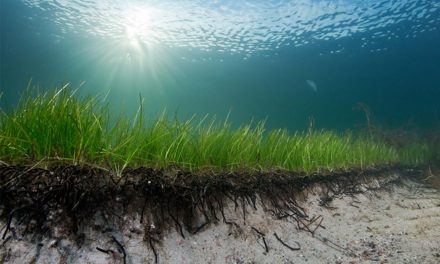
Light pollution may extend mosquitoes’ biting season

A new study suggests that light pollution at night can disrupt mosquitoes’ winter dormancy thus extending its biting season
A new study’s finding that urban light pollution may disrupt the winter dormancy period for mosquitoes that transmit West Nile virus could be considered both good news and bad news.
The good news is that the disease-carrying pests may not survive the winter if their plans to fatten up are foiled. The bad news is their dormancy period, known as diapause, may simply be delayed – meaning they’re biting humans and animals longer into the autumn.
Megan Meuti, senior author of the study and an assistant professor of entomology at The Ohio State University, said: “We see the highest levels of West Nile virus transmission in the late summer and early [autumn] in Ohio.
“If you have mosquitoes postponing or delaying diapause and continuing to be active longer in the year, that’s at a time when the mosquitoes are most likely to be infected with West Nile virus and people could be at greatest risk of contracting it.”
This study and earlier findings by Meuti and her colleagues are among the first to show that artificial light at night could have a significant impact on mosquito behaviour – including effects that aren’t necessarily predictable.
She said: “We’re finding that the same urban light at night can have very different effects under different seasonal contexts.”
Meuti conducted the study with first author Matthew Wolkoff and Lydia Fyie, both PhD candidates in entomology at Ohio State.
Diapause for female Northern house mosquitoes (Culex pipiens) is not quite a winter slumber, but rather a period of dormancy when the insects live in caves, culverts, sheds and other semi-protected locations.
Prior to winter’s arrival, mosquitoes convert sugary sources, such as plant nectar, into fat. As days get longer, females begin foraging for blood meals to enable egg production.
Some get infected with West Nile virus by feeding on infected birds, and later transmit the virus when they feed on people, horses and other mammals.
- Synthetic skin may unlock blood-sucking secrets of mosquitoes
- Needle-free tool could help eliminate malaria
- mRNA vaccines offer one-two punch to combat malaria
Dim light
This study builds upon two previous findings from Meuti’s lab: for her dissertation, Meuti found that circadian clock genes differ between diapausing and non-diapausing mosquitoes, strongly suggesting that day length dictates when diapause should start; and more recent work led by Fyie found that female mosquitoes exposed to dim light at night averted diapause and became reproductively active – even when short days indicated they should be dormant.
In the current study authored by Wolkoff, the researchers pursued both lines of inquiry, comparing daily activity and nutrient accumulation by mosquitoes reared in two lab conditions – long days mimicking the insects’ active season and short days that induced dormancy – with and without exposure to artificial light at night.
The study provided more evidence associated with a circadian pattern to mosquito behaviour, showing that insects’ activity decreases during diapause, but the circadian rhythmicity of that activity is sustained even during this dormant period.
The introduction of artificial light at night was found to affect those activity patterns and to influence mosquitoes’ acquisition of nutrient reserves needed for fattening up and weathering winter temperatures.
Exposure to light pollution suppressed the amount of water-soluble carbohydrates – sugars that are an essential food source during winter – that were accumulated by mosquitoes in both long- and short-day conditions.
Patterns of accumulation of the sugar glycogen were reversed by exposure to artificial light at night: under normal conditions, non-dormant mosquitoes had lots of glycogen in their bodies but diapausing bugs did not – but in mosquitoes subjected to light pollution, the long-day mosquitoes didn’t accumulate much glycogen and short-day mosquitoes showed an increase in glycogen accumulation.
The researchers observed consistent trends in activity-related effects of light at night, with slight increased activity among the dormant mosquitoes and slightly suppressed activity among long-day mosquitoes expected to be busy looking for food.
Though the findings weren’t statistically significant, Wolkoff said the combined observations suggest light pollution causes mosquitoes to ward off diapause – perhaps by scrambling signals from their circadian clock.
Wolkoff said: “This could be bad for mammals in the short term because mosquitoes are potentially biting us later in the season, but it could also be bad for mosquitoes in the long term because they might be failing to fully engage in preparatory activities they need to survive the winter during diapause, and that might reduce their survival rate.”
The researchers plan to carry out field studies to see if these lab findings hold true in the wild.
The research was published recently in the journal Insects.
Image: Northern house mosquito (Culex pipiens) © Jedesto (CC BY-SA 4.0) https://creativecommons.org/licenses/by-sa/4.0/legalcode.















